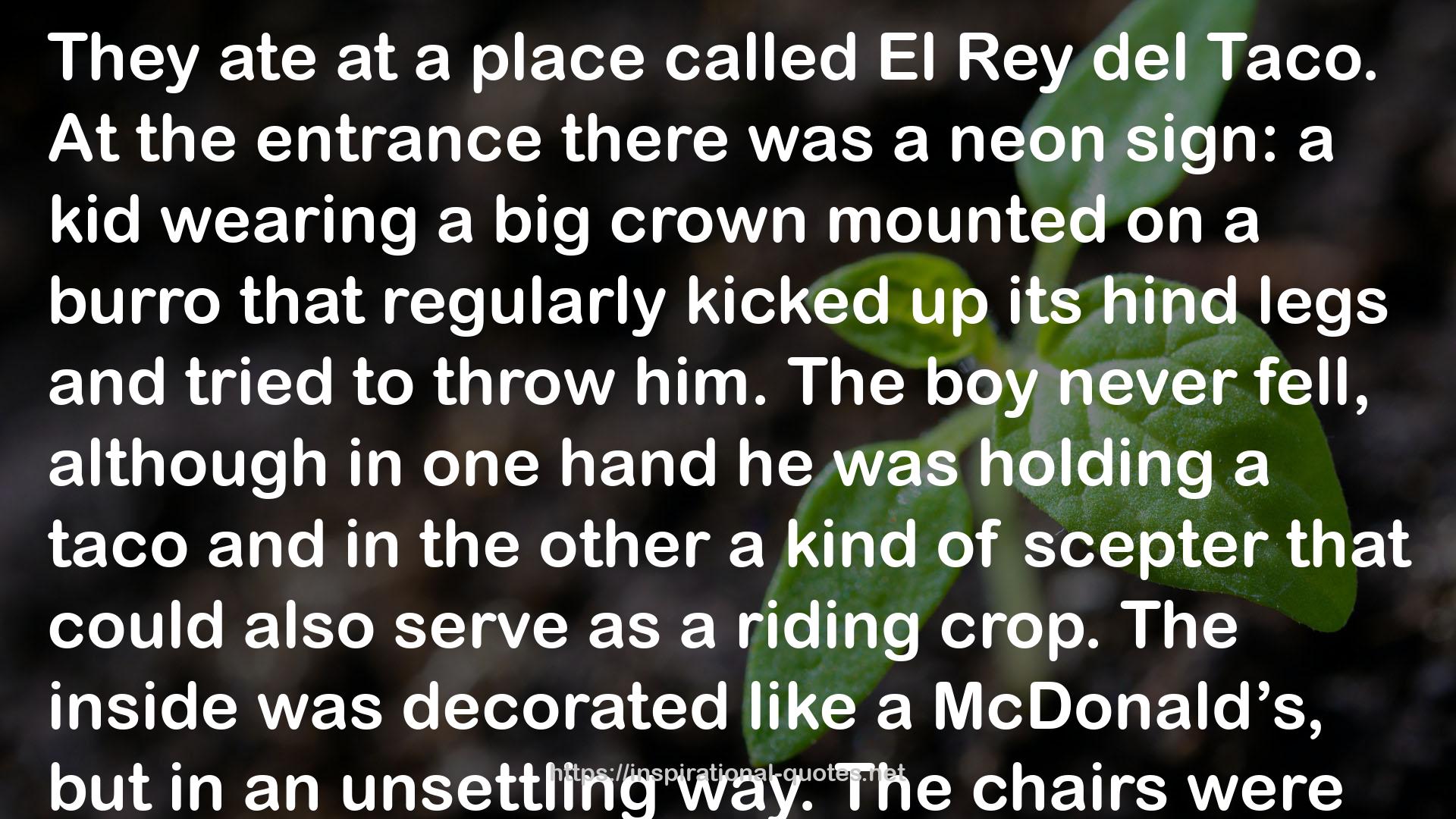" They ate at a place called El Rey del Taco. At the entrance there was a neon sign: a kid wearing a big crown mounted on a burro that regularly kicked up its hind legs and tried to throw him. The boy never fell, although in one hand he was holding a taco and in the other a kind of scepter that could also serve as a riding crop. The inside was decorated like a McDonald’s, but in an unsettling way. The chairs were straw, not plastic. The tables were wooden. The floor was covered in big green tiles, some of them printed with desert landscapes and episodes from the life of El Rey del Taco. From the ceiling hung piñatas featuring more adventures of the boy king, always accompanied by the burro. Some of the scenes depicted were charmingly ordinary: the boy, the burro, and a one-eyed old woman, or the boy, the burro, and a well, or the boy, the burro, and a pot of beans. Other scenes were set firmly in the realm of the fantastic: in some the boy and the burro fell down a ravine, in others, the boy and the burro were tied to a funeral pyre, and there was even one in which the boy threatened to shoot his burro, holding a gun to its head. It was as if El Rey del Taco weren’t the name of a restaurant but a character in a comic book Fate happened never to have heard of. Still, the feeling of being in a McDonald’s persisted. Maybe the waitresses and waiters, very young and dressed in military uniforms (Chucho Flores told him they were dressed up as federales), helped create the impression. This was certainly no victorious army. The young waiters radiated exhaustion, although they smiled at the customers. Some of them seemed lost in the desert that was El Rey del Taco. Others, fifteen-year-olds or fourteen-year-olds, tried in vain to joke with some of the diners, men on their own or in pairs who looked like government workers or cops, men who eyed them grimly, in no mood for jokes. Some of the girls had tears in their eyes, and they seemed unreal, faces glimpsed in a dream. “This place is like hell,” he said to Rosa Amalfitano. “You’re right,” she said, looking at him sympathetically, “but the food isn’t bad. "
― Roberto Bolaño , 2666
Image for Quotes

